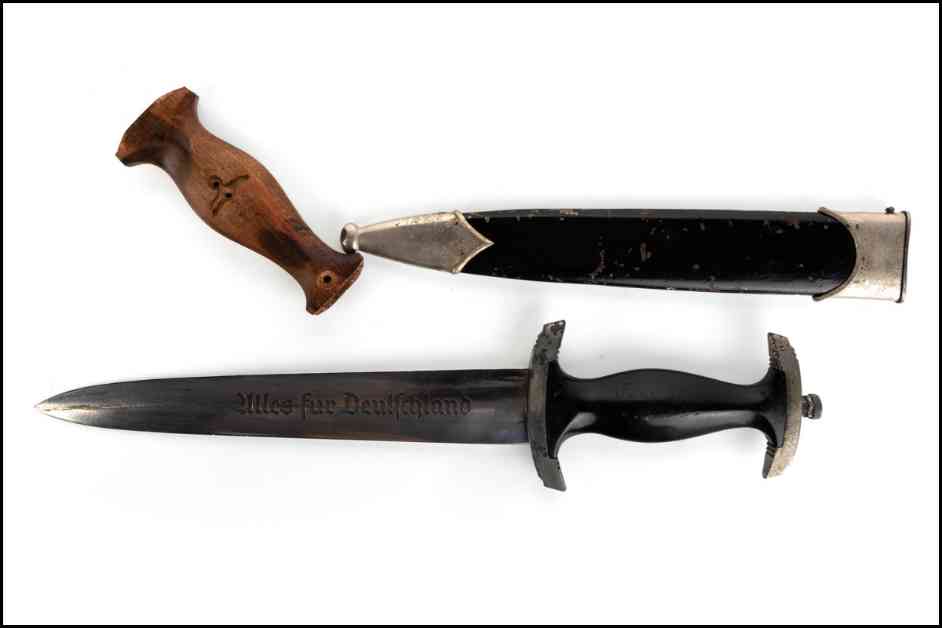Glasgow Auction House Ceases Sale of Nazi Items
A recent auction at McTear’s in Glasgow featuring Nazi and SS artefacts has sparked controversy and led to a significant decision by the Scottish auction house. The sale included several items from Hitler’s Germany, such as a 1939 Iron Cross medal, a 1933 badge with a swastika, Nazi bunting, and a Third Reich Luftwaffe dress dagger, among others. Despite the historical significance of these items, McTear’s has announced that it will no longer auction Nazi memorabilia in the future.
The Decision and Sensitivity Surrounding Nazi Memorabilia
McTear’s, known for its dedicated sales of historic militaria, has faced criticism for including Nazi items in its auctions. While the sale of such artefacts is not illegal in the UK, it has often been a contentious issue. In response to concerns raised by various groups, including Jewish leaders, the auction house has now taken a firm stance against selling Nazi and SS items.
A spokesperson for McTear’s emphasized the importance of acknowledging the dark history associated with these artefacts while also recognizing the sensitivity surrounding their sale. The decision to discontinue the auction of Nazi items reflects a nuanced understanding of the ethical implications of dealing with such objects. By refusing to profit from the recent sale of Nazi memorabilia and pledging not to include similar items in future auctions, McTear’s is taking a principled stand against glorifying or trivializing the atrocities of the past.
Historical Significance and Ethical Considerations
The sale of Nazi memorabilia raises complex questions about how societies remember and reckon with dark chapters of history. While some argue that these items serve as tangible reminders of the past and are essential for historical education, others contend that selling such artefacts can perpetuate glorification or nostalgia for oppressive regimes. The decision by McTear’s to halt the auction of Nazi items reflects a broader debate about the ethical responsibilities of institutions and individuals when dealing with sensitive historical materials.
In Wednesday’s auction, alongside the controversial Nazi artefacts, McTear’s also featured items like silver plates believed to be from Hermann Goering’s personal train dining wagon and a “Third Reich North Africa propaganda one pound note.” The diverse range of items highlights the complexities of historical remembrance and the ways in which material objects can evoke different emotions and interpretations.
Moving Forward with Historical Sensitivity
As McTear’s transitions away from auctioning Nazi memorabilia, it signals a commitment to ethical considerations and public sentiment. While the decision may disappoint some collectors or historians, it underscores the evolving ethical standards within the auction industry and the broader cultural landscape. By engaging in meaningful conversations about the implications of buying and selling historical artefacts, we can foster a more nuanced understanding of the past and ensure that sensitive materials are handled with care and respect.
In conclusion, the decision by McTear’s to end the sale of Nazi items marks a significant shift in the auction house’s approach to dealing with controversial historical artefacts. By prioritizing ethical considerations and acknowledging the sensitivity surrounding Nazi memorabilia, McTear’s sets a precedent for responsible stewardship of history and encourages broader conversations about how we engage with the legacies of the past.
































